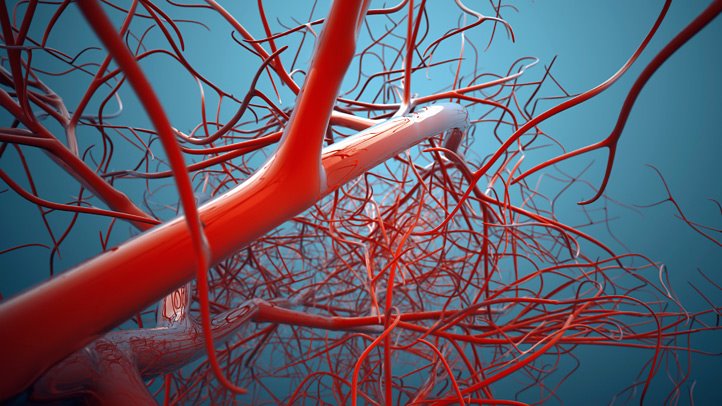Blood vessel growth may improve treatment
Scientists have discovered a cell mechanism involving the hormone leptin that plays a key role in the formation of new blood vessels. The discovery may help to develop treatments that stimulate tissue repair following a heart attack, as well as treatments that stop abnormal tissue growth, such as in cancer.
The finding reveals important new clues about the cell biology of “angiogenesis,” or the generation of new blood vessels, which occurs in both health and disease. The new study investigated how a group of cells called pericytes stimulate the growth of new blood vessels. Pericytes are a type of stem cell found in the walls of blood vessels. In their report, the researchers note that pericytes are “emerging as promising candidates” for treatments that involve new blood vessel generation. Studies that have investigated what happens when pericytes are transplanted into tissue that has suffered from insufficient blood supply, or “ischemia,” have already shown that the cells are stimulated by lack of oxygen. However, the molecular process remained unknown. Prof. Madeddu and colleagues discovered that the hormone leptin appears to play an important role in the ability of pericytes to stimulate new blood vessel growth.
The researchers also found that the increase in leptin makes the pericytes more resistant to induced cell death, or “apoptosis,” and that it enhances their ability to migrate and stimulate blood vessel formation. They conclude that leptin appears to play an important part in a number of actions that help to generate new blood vessels in tissue that has suffered from oxygen starvation. “Increasing leptin in pericytes in a damaged heart might help it to heal faster,” Prof. Madeddu explains, “whereas blocking the production of leptin in cancerous pericytes might starve the tumor of nutrients and force it to shrink.” He and his colleagues hope that the discovery will help to develop treatments that mean heart attack patients do not have to undergo coronary artery bypass, which usually takes a long time to recover from. The invasive surgery involves taking blood vessels from elsewhere in the body, such as a leg, to bypass the damaged artery and restore blood flow to the heart muscle.
“This new discovery could have important implications for the treatment of heart attacks, which is when a main coronary artery gets blocked, but also cancer. These results reveal a new signaling mechanism that may have a far-reaching and significant impact on cardiovascular regenerative medicine.”
———————————————————————————————-
Watch your favorite programs, documentaries, informative packages and latest NEWS(English and Urdu).
Watch Humsub tv Live Streaming here: Humsub.tv
Read English Latest Articles and News here: Humsub
Read Urdu Latest News and Articles here: Urdu News
———————————————————————————————-

